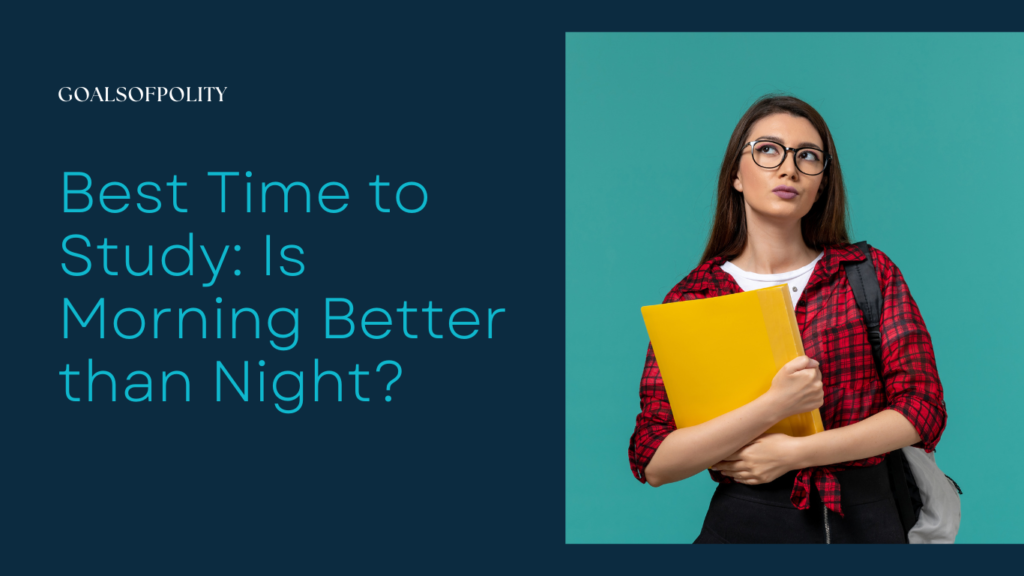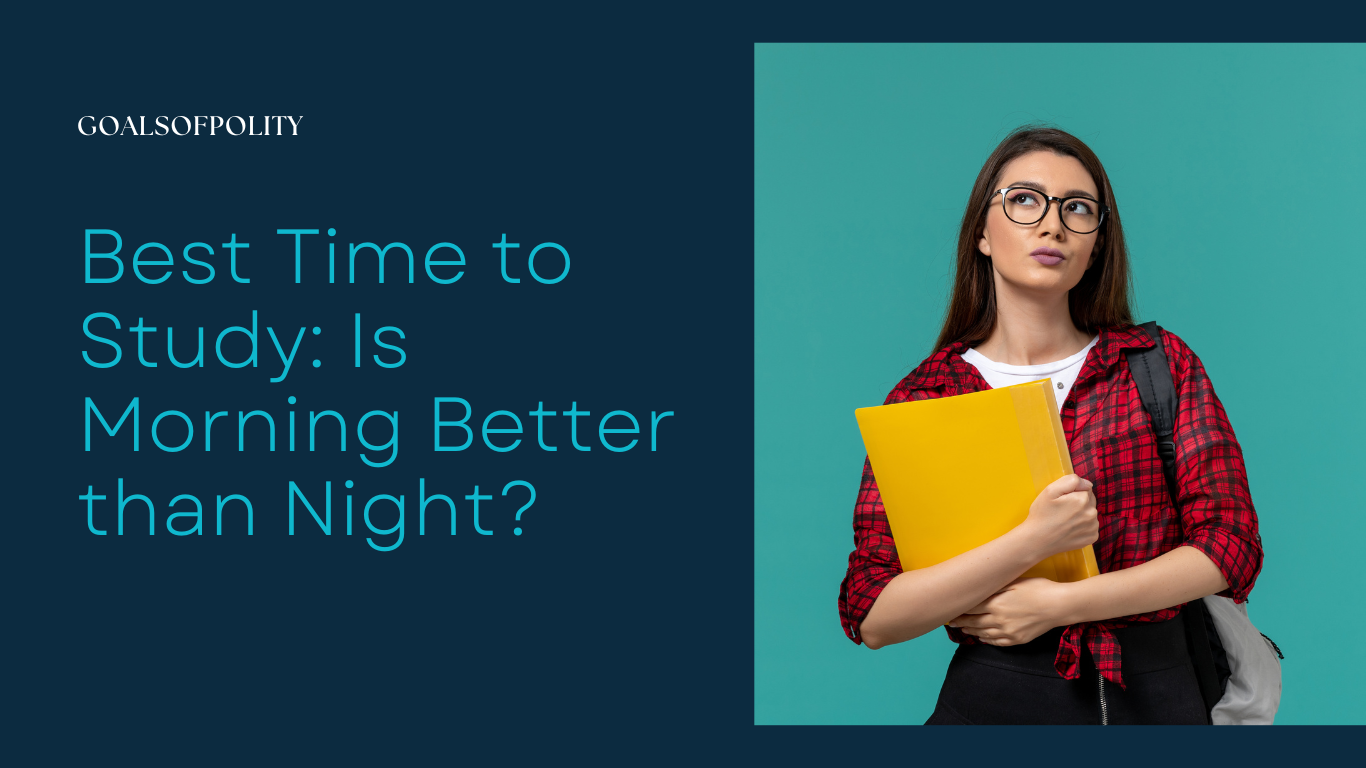
Table of Contents
1. Introduction: The Importance of Study Time:
Briefly explain how choosing the right time to study can affect productivity, attention, and retention.
Explain how personal preferences and lifestyle factors can affect study time.
2. Factors to consider when finding the best study time:
Energy Level: Discuss how some students naturally feel more alert in the morning, while others feel more focused at night.
Daily Routine: Explain how balancing other activities such as classes, homework, family time, and extracurricular activities can help determine the best study time.
Personal Goals and Deadlines: Emphasize how setting goals (such as preparing for a test or completing an assignment) can help determine when to study.
3. Benefits of Morning Studying:
Better Attention and Retention: Explain how studying in the morning can align with natural rhythms, potentially making it easier to retain information.
Distractions are minimal: Discuss how mornings are often quieter, leading to fewer disruptions.
Healthy Habits: Explain how a morning study routine can lead to a healthier routine with good sleep patterns.
4. Benefits of Night Study:
Quiet Environment: Late-night hours can be tranquil, which helps students find peace in a serene environment.
Creativity and Problem-Solving: Some students find that their creative thinking peaks in the evening, making it a good time to brainstorm or tackle complex problems.
Flexibility: Night study allows for flexible hours, which is especially helpful for students who have a busy daytime schedule.
5. Comparison of Morning vs. Night Study: Which is Better?
Quality of Attention vs. Amount of Time: Describe how attention may vary for each person depending on the time of day.
Sleep Patterns and Health Implications: Discuss the importance of sleep and how each option affects sleep cycles.
Consistency is Key: Encourage students to choose a routine and stick to it for the best long-term results.
6. Conclusion: Find the Best Option for You:
In short, there is no one-size-fits-all answer – it comes down to personal preference.
Suggest trying out both times to see which helps them retain information and stay motivated.

